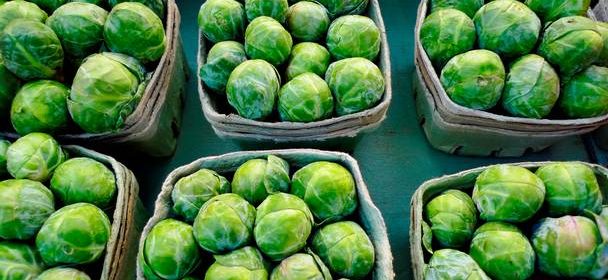Pass the sprouts? How to avoid excess gas this Christmas

It has various names — flatulence, gas, wind, or as most of us know it, farting.
They say everyone does it, but when it becomes an issue, you need to think what can you do about excessive farting.
Going back to the beginning is a good start and understanding, why do we fart?
Dr Sinead Beirne says that the intestinal gas that causes farting is produced by bacteria in the colon.
“When you eat certain foods — such as beans, broccoli, fruit, wheat, potatoes, corn, and noodles — bacteria in the intestines digest parts of these foods and spit out gas.
“Another reason for flatulence is to do with trouble digesting certain foods, such as wheat or dairy products, as well as conditions that harm the digestive system.”
Dr Beirne said that there are several conditions that may lead to increased gas formation.
Certain foods contain specific carbohydrates called “FODMAPs” (fermentable oligo-, di-, and monosaccharides and polyols).
She said FODMAPs are poorly absorbed and can result in bloating and gas production in some people.
“A diet that is low in FODMAPs (which are found in wheat, barley, milk, and certain fruits and vegetables, among other foods) may reduce the amount of gas you produce,” said Dr Beirne.
Another cause of increased gas is lactose intolerance.
“This occurs when your body has difficulty digesting lactose, the sugar found in most milk-based products,” she added.
A further reason is when some people are intolerant of sugars contained in certain foods. Two common examples are fructose (contained in dried fruit, honey, sucrose, onions, artichokes, and many foods and drinks that contain high-fructose corn syrup) and sorbitol (a sugar substitute contained in some sugar-free candies and chewing gum).
It’s all very well to know the reasons behind flatulence, but what can be done to ease it?
Dr Beirne said people might feel better if they cut down on certain foods.
“Write down what you eat so you can figure out which foods are causing your gas.
“Everyone’s body is different, but some common causes of gas are milk and dairy products, beans, some vegetables (such as cabbage, brussels sprouts, asparagus and broccoli), potatoes, corn, some wholegrains (such as wheat), most types of fruit, artificial sweeteners, fizzy drinks and chewing gum.
“If you suffer with irritable bowel symptoms as well as flatulence, it’s worth trying a probiotic. There’s good evidence for Alforex,” she added.
Christmas is an especially tricky time when it comes to excess eating.
Dr Deirdre O’Donovan, consultant gastroenterologist at the Blackrock Clinic in Dublin, said that holiday season can be a strain for people with bowel problems.
She said: “Dietary plans often fall to the wayside as people are faced with a barrage of rich goods, excess alcohol and some late nights. Couple that with the pressure and stress we all put on ourselves over Christmas and you have a perfect storm — all the triggers that exacerbate GI conditions are present.”
Dr O’Donovan said that she would advise people to pace themselves this Christmas. “Be aware that your gut will not respond or recover the way someone else’s might. It’s all about exerting some moderation.
“Be very conscious of keeping well-hydrated. If you have a blow out at a party, don’t do it again the next night. Taking some over-the-counter remedies, like copper min, which is a peppermint oil, along with a probiotic can be helpful — but they won’t prevent the ill effects of a heavy night.
Over-the-counter acid-lowering medications can also help minimise GI upset, but should only be taken for a few days,” she said.
Meanwhile, Dr Sinead Beirne shared these top tips on managing gut health over the festive season:
1. Drink water
Loading up on water daily has a beneficial effect on the lining of the gut. Water can also promote the balance of good bacteria in the gut.
2. Reduce alcohol
It’s easy to drink too much alcohol in the run up to Christmas. Although we might enjoy having a few beers or a few glasses of wine to relax, our guts too often pay the price. Flatulence, bloating and belching are all common effects of booze on the gut. One of the best things you can do is to instead hydrate with water.
3. Exercise
Exercise is that magic medicine that has positive effects on every aspect of our health, and our gut is no exception. There is evidence that exercise changes the bacteria in our guts for the better. It also helps prevent constipation and moves along unwanted gas.
4. Eat more fibre
Many studies have strongly linked high-fibre diets with longer and healthier lives. Once again, this is tied with our gut microbes. A good varied fibre diet helps the good bugs in our gut to thrive which helps digestion, so stock up fruit and veggies.
5. Reduce Funk food
Unfortunately, our guts don’t like sugary, fatty processed foods. Try to avoid junk foods like fizzy drinks, biscuits, chips and pizza. This is so hard to do when we are surrounded with it at Christmas, so try to plan ahead and keep healthy snacks at hand.
6. Take a probiotic
When you’re leading a busy life and find that your irritable bowel is playing havoc, I’d highly recommend taking a good probiotic.
Source: Read Full Article